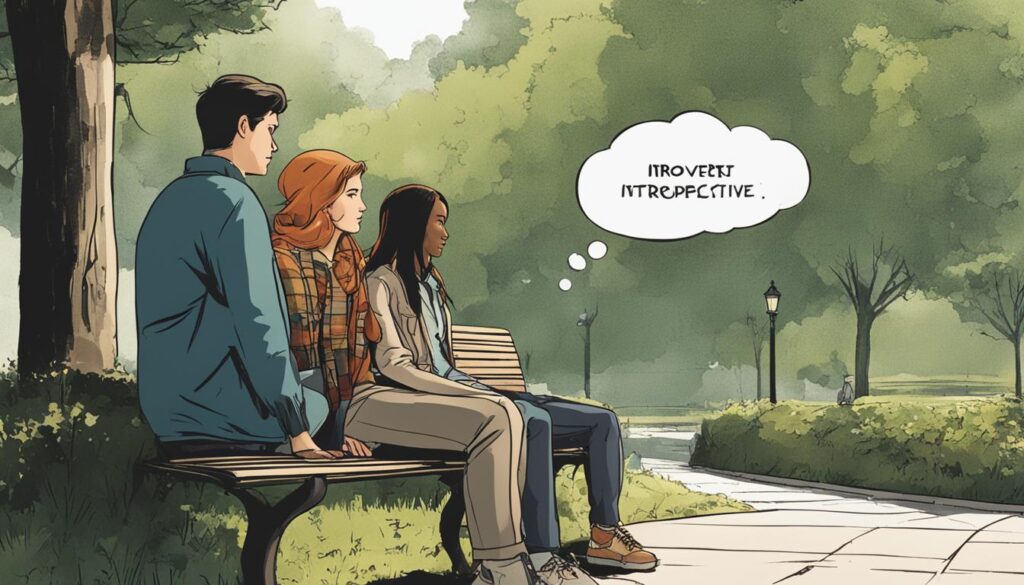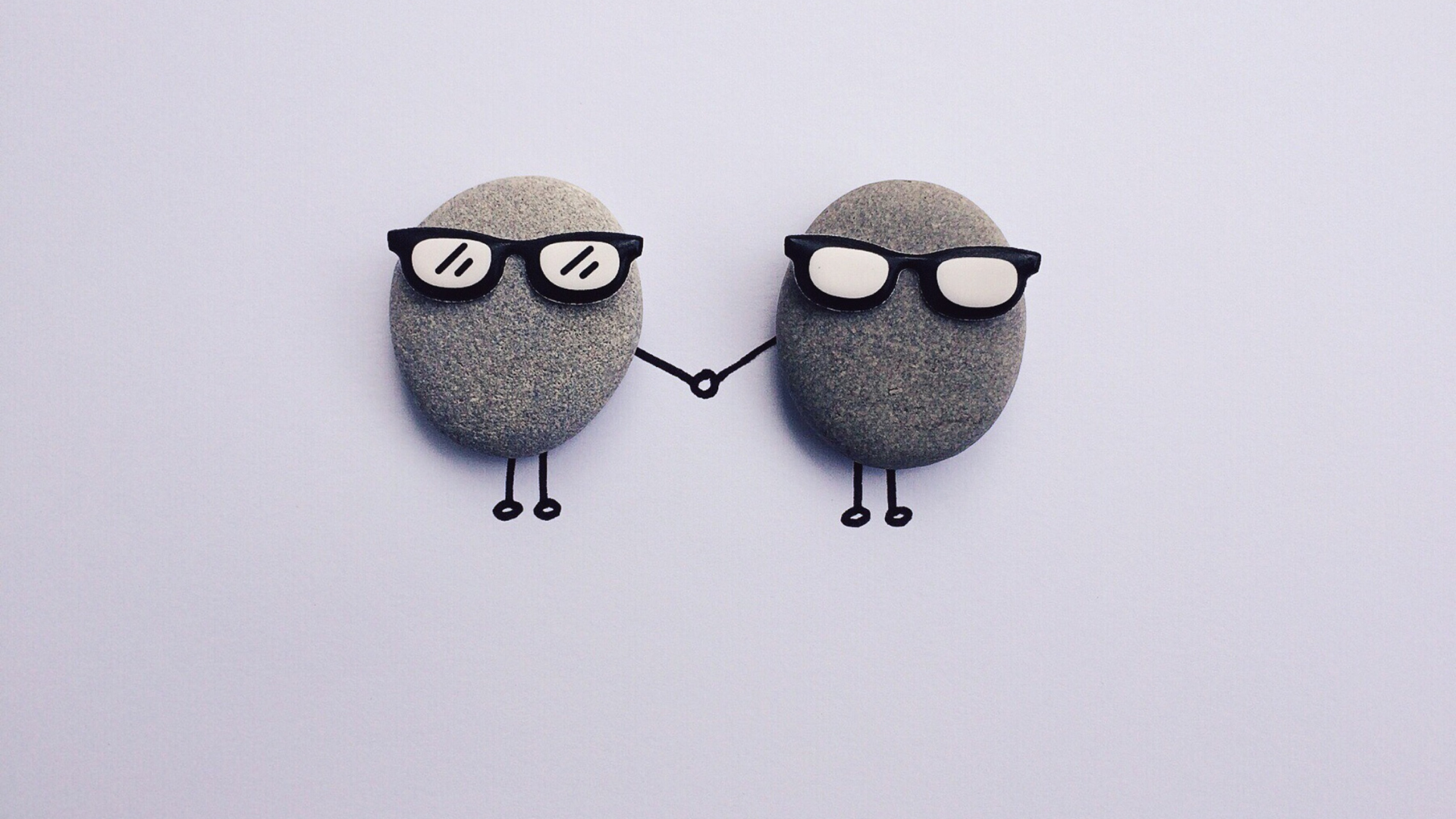The question of whether do extroverts like being friends with introverts has sparked myriad discussions, each teaming with anecdotes and theories. In the vibrant tapestry of human connections, the friendship between extroverts and introverts often unfolds as a compelling narrative, replete with its unique set of challenges and triumphs.
You might assume that extroverts, with their expansive social circles, would gravitate towards fellow social butterflies. Yet, the magnetic pull of differing personalities creates an intriguing subplot in the saga of social interactions. This paradox raises an eyebrow or two—prompting us to delve into the essence of these unlikely alliances, and discern why such relationships not only flourish but may also serve as a testament to the profound complexity of friendship.
Key Takeaways
- Discover the unexpected reasons why extroverts might seek out and cherish friendships with introverts.
- Learn how the contrast in social preferences can enrich the friendship experience for both extroverts and introverts.
- Understand that the dynamics of extrovert and introvert friendships often defy the commonplace expectations.
- Explore the potential for profound personal growth when extroverts and introverts forge a strong connection.
- Gain insight into the balance of energy that is unique to the friendship between extroverts and introverts.
- Find out how these friendships challenge the norms and offer a fresh perspective on building meaningful relationships.
Exploring the Myths: Can Extroverts and Introverts Form a Solid Friendship?
Despite what social stereotypes may have led you to believe, extroverts and introverts are not on extreme opposites where friendships are implausible. The common narrative suggests that the social butterfly—an extrovert—might find the company of the quiet introvert dull, while an introvert might get overwhelmed by the extrovert’s energy. This simplistic view doesn’t encompass the depth and flexibility of human relationships.
It’s a notion worth challenging: can extroverts and introverts be friends? Absolutely. To get to the heart of this question, let’s dispel some of the prevalent myths about extroverts and introverts friendship.
Extroverts and introverts are characterized more by their approach to socialization than an aversion or an inclination for companionship. They often find a unique and rewarding harmony within their differences.
So, what exactly are the tall tales that need debunking? Here are the top misconceptions:
- Introverts don’t like to socialize: In reality, introverts do enjoy socializing; they simply prefer meaningful interactions over small talk.
- Extroverts make friends more easily: While extroverts may have broader social networks, the depth of those relationships can vary. Introverts often forge deep connections, albeit with a smaller circle.
- Introverts need to be alone all the time: Contrary to this myth, introverts appreciate company but value quiet time to recharge.
- Extroverts are always the life of the party: Extroverts do enjoy lively environments but they, too, can appreciate calm and introspective moments.
- Extroverts and introverts have nothing in common: They can share numerous interests; their difference lies in how they process and engage with the world around them.
Diving deeper into friendships between these two temperaments, we see a dynamic interplay where each personality brings something valuable to the table—creating a well-rounded, encompassing, and supportive relationship.
| Myth | Reality |
|---|---|
| Extroverts don’t value deep conversations. | Extroverts can and do engage in deep, reflective conversations. |
| Introverts aren’t fun to be with. | Introverts can be incredibly fun, offering a different kind of enjoyment that’s more subdued but equally enjoyable. |
| Friendships must have similar social styles to thrive. | Diverse social styles can complement and strengthen a friendship through balance and understanding. |
When extroverts and introverts strike a friendship, there’s potential for mutual enrichment. These relationships are marked by growth, learning, and understanding—benefits that are far richer than any myth might suggest.
In your own life, you may have witnessed or even been part of a friendship that crosses the introvert-extrovert divide. It’s interactions like these that remind us that personalities are not barriers to friendship, but bridges to diverse, fulfilling connections.
Surprising Truths Behind Extroverts and Introverts Friendship Dynamics
When you unravel the complexities of extroverts and introverts friendship dynamics, you may discover a world where supposed social opposites attract and thrive. Despite distinct differences in their approach to socializing, extroverts and introverts as friends can form a powerful and symbiotic bond, yielding a myriad of benefits.
The Social Synergy of Opposite Personalities
The notion of social synergy of extroverts and introverts encapsulates the essence of their unexpected cohesion. When an extrovert’s natural propensity to explore wide social networks meets an introvert’s depth of thought and preference for intimate settings, a unique equilibrium emerges. These high-contrast social styles can, surprisingly, fuel a friendship that leverages the extroverts and introverts compatibility to explore new avenues of socializing and self-discovery.
At the core of this social synergy lies the appreciation for each other’s natural inclinations – the extrovert learning the art of introspection and the introvert venturing into broader social waters.

Bridging the Communication Gap
While conventional wisdom may pit extroverts and introverts as misfits on the communication continuum, the truth paints a different picture. Effective communication between extroverts and introverts is not only possible but can serve as the bedrock for enduring friendships. Extroverts often help introverts articulate their insightful thoughts in social scenarios, while introverts provide a reflective sounding board for extroverts’ ideas and experiences. This reciprocal exchange promotes an enriched dialogue that transcends the superficial.
Appreciating the Value of Diverse Perspectives
The very nature of extroverts and introverts bonding is rooted in cherishing diverse perspectives in friendships. When individuals with contrasting personalities come together, it offers a panoramic view of life that single personality friendships seldom encounter. The extroverts and introverts compatibility within such dynamics broadens the cognitive and emotional horizons, paving the way for a friendship that is as enlightening as it is enjoyable.
- Extroverts introduce introverts to new experiences and a wider circle of acquaintances.
- Introverts offer extroverts a space for focused dialogue and reflection.
| Extrovert Contributions | Introvert Contributions |
|---|---|
| Sharing diverse social connections | Providing a deep focus on subjects |
| Bringing energy and action into plans | Introducing calmness and thoughtful consideration |
| Offering exposure to varied social settings | Cultivating meaningful one-on-one interactions |
In sum, the dance of friendship between extroverts and introverts is less about assimilation and more about celebrating individual strength. It’s a testament to the idea that friendship doesn’t always require sameness, but rather an open heart and an understanding mind to embrace the full spectrum of personalities life offers.
Benefits of Extrovert-Introvert Friendships for Both Sides
Extroverts and introverts relationships may seem unlikely given their different approaches to social engagement, yet the benefits of extrovert-introvert friendships are plentiful for both personality types. Understanding the mutual advantages can help each appreciate the unique qualities they bring to their friendship, forming a more resilient, diverse, and enriching bond.
Extroverts and introverts both benefit from their friendships by stepping outside their comfort zones, leading to personal growth and a deeper appreciation for different perspectives.
An extrovert-introvert relationship fosters personal development in ways that homogeneous pairings may not. As each steps into one another’s worlds, they gain new experiences that can shape character and broaden horizons.
- Extroverts can learn the value of introspection from their introverted friends, thus deepening self-awareness.
- Introverts get a taste of diverse social experiences, which can help them build confidence in larger groups.
- Extroverts are often pushed to explore deeper emotional connections, while introverts learn to navigate larger social networks.
- Through balanced experiences, both personality types enhance communication skills by adapting to varied social interactions.
- Stress relief is found in the unique support system that comes with understanding different social and psychological needs.
These friendships also expose both sides to alternative ways of expending or conserving energy, resulting in a more flexible approach to life.
| Benefit | Extrovert Gains | Introvert Gains |
|---|---|---|
| Emotional Insight | Harnessing a deeper sense of empathy | Comfort in expressing emotions |
| Social Skills | Learning to listen and reflect | Practicing public speaking in a trusted setting |
| Stress Management | Exploring calming strategies | Engaging in lively activities as an outlet |
Overall, the benefits of extrovert-introvert friendships contribute to the personal growth, emotional maturity, and social versatility of both extroverts and introverts. Through these symbiotic relationships, the different personality types not only complement but strengthen one another, adding to the richness of their shared experiences and individual lives.
How Extroverts and Introverts Complement Each Other as Friends
In the grand dance of social exchange, extroverts and introverts complementing each other form a partnership that is both unexpected and extraordinarily fruitful. Far from the worn stereotypes that put them at odds, these personality types offer each other a harmonious balance, rich in growth and discovery. By balancing social energy in relationships, this dynamic connects the dots between solitary reflection and communal action, crafting a friendship that is as rewarding as it is multifaceted.
Balancing Social Energy in Relationships
Imagine the social scene as a seesaw, with extroversion and introversion on either end. When these forces come together in friendship, they don’t simply teeter in opposition—they find a median, a valuable stance that balances social energy in relationships. The vigour of extroverts sparks gatherings and networks that introverts might typically avoid, while the considerate pace of introverts offers a much-needed respite to their extroverted counterparts. This equilibrium allows each type to thrive, providing avenues for relaxation and engagement at appropriate intervals.

Consider an extrovert who brims with energy, always ready to connect. When they form a bond with an introverted friend, they benefit from exposure to calm, thoughtful environments, which can be refreshing and vital for their well-being. The extrovert, in their turn, gently nudges the introvert out of their shell into social settings they might otherwise never explore. Here, the extroverts embracing introverted friends find a reciprocal exchange of comfort and exposure that helps regulate their social batteries—preventing burnout on one end and fostering growth on the other.
Introverts Offer Reflection, Extroverts Spark Action
It’s in the fusion of introverts offer reflection and extroverts spark action where the deep value of their friendship shines. Introverts, with their natural tendency for contemplation and analysis, provide a foundation for grounded, well-considered ideas. They act as an anchor that encourages extroverts to pause and reflect on the consequences of their dynamic, sometimes impulsive deeds.
While the introverts offer the gift of introspection, extroverts bestow upon their friends the zeal to take action, turning musings into tangible experiences.
Together, this balanced act fosters a symbiotic growth where cautious wisdom meets energetic ambition. Extroverts drive forward communal goals and fun, while introverts ensure these undertakings have depth and meaning. The resulting harmony not only fortifies their friendship but also contributes to their individual journeys toward personal development.
| Aspect of Friendship | Introvert’s Contribution | Extrovert’s Contribution |
|---|---|---|
| Decision-Making | Provides thoughtful consideration | Initiates action and momentum |
| Social Engagements | Brings quality and depth | Offers variety and excitement |
| Personal Development | Promotes self-reflection and awareness | Encourages new experiences and challenges |
In rendering these collaborative exchanges, the friendship between extroverts and introverts becomes a fertile ground for enrichment and fulfillment. Each contributes uniquely to the other’s life, making the partnership not merely viable but indeed indispensable for those who have discovered its beauty. The harmony attained through their shared energy and pursuits adds depth to both personalities, while also illustrating the sheer diversity of human connections.
Characteristics of Successful Extrovert-Introvert Friendships
At the core of successful introvert-extrovert relationships are character traits that facilitate a deep understanding and appreciation between partners of seemingly opposite personality spectrums. The dynamics are built on a foundation of mutual respect and an acknowledgment of each other’s differences and strengths.
Harmonious extrovert-introvert friendships are a delicate balance of giving space and providing energy. These bonds thrive when both parties are aware of, and respect, their divergent needs for socialization and solitude.
So what makes these friendships last? It’s about navigating the nuances of interaction with finesse and understanding. The characteristics outlined below are not exhaustive but essential for the health and longevity of these relationships:
- Communication: Clear, open, and empathetic dialogue helps both friends express their needs without misunderstandings.
- Respect for Boundaries: Recognizing when an introverted friend needs quiet time or when an extroverted friend is craving social interaction is key.
- Patience: Adjusting to each other’s pace in social settings is necessary for a comfortable relationship.
- Flexibility: The ability to adapt plans and be open to each other’s preferences can greatly enhance the friendship experience.
- Appreciation of Differences: Finding beauty in contrast and learning from each other’s unique worldviews.
These traits, when present in a friendship, create an environment where both extroverts and introverts feel valued and understood. A successful relationship embodies the essence of these characteristics, as displayed in the table below:
| Characteristic | Introvert’s Role | Extrovert’s Role |
|---|---|---|
| Active Listening | Provides thoughtful feedback and understanding | Shares experiences and ideas openly |
| Balanced Social Planning | Initiates comfortable settings for smaller gatherings | Incorporates variety and larger social activities |
| Reciprocal Energizing | Offers reflective moments and calm | Brings excitement and dynamic energy |
| Mutual Learning | Explores outward expression in safe environments | Gains insight into introspective processing |
You’ll find that the characteristics of successful extrovert-introvert friendships are not only about balancing social batteries but also about creating a unified alliance that is respectful of personal idiosyncrasies. It’s a partnership where both friends contribute positively to each other’s lives.
The Role of Empathy in Extroverts and Introverts Bonding
Empathy is the linchpin that can hold together the complex worlds of extroverts and introverts. In friendships that might seem disparate, it’s empathy that bridges the gap, allowing divergent personalities to connect in meaningful ways. By understanding and accommodating the varied social preferences that each friend brings to the table, individuals within these dyads are able to cultivate bonds that are rich, understanding, and deeply empathetic.
Understanding Different Social Needs
The fabric of an empathetic extrovert-introvert friendship is woven with threads of understanding each other’s inherent social needs. This goes beyond mere acceptance; it involves an active effort to comprehend how one’s friend might experience social situations differently. Understanding social needs in friendships isn’t about changing one’s natural tendencies, but rather about adapting to and respecting those needs.
True friendship is not the absence of conflict, but the ability to cope with it by understanding each other’s point of view.
For instance, an introvert might require downtime after a bustling party, while an extrovert might draw energy from the same situation. Recognizing moments when to step back or engage is crucial in empathy in extrovert-introvert friendships. Understanding introverts and extroverts’ social needs implies noticing cues and acting empathetically towards them.
- Introverts might treasure silence; being around people who understand that need without judgment is liberating.
- Extroverts may seek dynamic conversations; having friends who will engage in spirited discussions can be energizing.
But how can friends know when to give space or engage? Communication and observation are key. Discussing one’s preferences openly can help both parties preemptively understand what environments will be enjoyable or taxing for each other.
| Social Preferences | Introvert Needs | Extrovert Needs |
|---|---|---|
| Gatherings | Small, intimate groups | Larger, lively crowds |
| Communication | Deep, one-on-one conversations | Broad, active discussions |
| Recharge Time | Quiet solitude to decompress | Social interactions to re-energize |
| Party Preference | Leaving early to relax | Staying late for more interaction |
Managing and accommodating varying social preferences is a gesture of kindness and respect that can reinforce the resilience of a friendship. It’s about the give and take, the checks and balances that create a comfortable space for both parties to be themselves without fear of judgment or misunderstanding.

Whether you’re the life of the party or the person enjoying a quiet corner, remember that empathy has the extraordinary power to connect disparate stars into a constellation. It’s the understanding that someone else’s world is just as vivid as your own. When it comes to friendships, especially those between extroverts and introverts, it is the golden rule that guides the ship to a safe harbor of mutual support and respect. Embracing each other’s social needs, communicating boundaries, and creating space for individual preferences is the ultimate act of empathy that turns a good friendship into a great one.
Pros and Cons of Extrovert-Introvert Friendships
Delving into the dance of extrovert-introvert friendships provides a nuanced portrait of interpersonal dynamics. The unique blend of contrasting energy levels and social preferences weaves a complex web of interactions. Here’s an exploration of the advantages and challenges faced when these distinct personalities merge in the realm of friendship.
Like yin and yang, extrovert and introvert friends can create a balance that fosters personal growth and understanding, while also presenting distinctive hurdles.
- Pros: Complementary strengths, broader perspectives, and individual growth.
- Cons: Differing social needs, potential for misunderstandings, and energy imbalance.
While the pros offer enriching experiences, the cons call for awareness and sensitivity. It’s essential to navigate these waters carefully to maintain a harmonious friendship.
Pros: Enriching Companionship With Balanced Diversity
| Benefit | Description |
|---|---|
| Complementary Strengths | Extroverts and introverts often have skill sets that complement one another, such as an extrovert’s knack for networking with an introvert’s depth of conversation. |
| Expanded Worldviews | Each personality type can introduce the other to new experiences, broadening their perspective on life and social situations. |
| Personal Growth | Challenges in the relationship often lead to personal development, fostering resilience and emotional intelligence. |
Cons: The Inevitable Tug-of-War
| Challenge | Description |
|---|---|
| Diverse Social Preferences | Extroverts may crave more social time than introverts are willing or able to give; introverts may feel overwhelmed by too many social engagements. |
| Misunderstandings | Misconceptions about each other’s behaviors, like mistaking introspection for disinterest or gregariousness for lacking depth, can strain the relationship. |
| Energy Imbalance | Extroverts and introverts have different approaches to recharge their energy, and finding a mutual rhythm can be challenging. |
In essence, the pros and cons of extrovert-introvert friendships reflect the deeper aspects of human connection. The blending of extroverts’ outgoing nature with introverts’ reflective demeanors can lead to extrovert-introvert friendship challenges that require understanding and compromise. With mutual respect and communication, these friendships can transcend their inherent challenges to offer a robust interplay of contrasting but complementary personalities.
Building Strong Relationships Between Introverts and Extroverts
When it comes to building relationships between introverts and extroverts and fostering healthy friendships between extroverts and introverts, the heart of the matter lies in balance and mutual respect. If you’re an extrovert looking to forge a connection with an introverted individual, consider the subtle art of tuning into their comfort zones. Recognize that your introverted peers may appreciate low-key environments for interactions, so suggesting a quiet coffee meet-up might be more appealing than a bustling party invitation. This thoughtful gesture demonstrates an understanding of their preferences, setting the stage for a friendship built on solid ground.
Tips for Extroverts Befriending Introverts
One of the essential tips for extroverts befriending introverts is to practice patience and listen carefully. These are key ingredients in the recipe for extroverts and introverts forming friendships. Remember, your introverted friends might take time to open up, so be willing to engage in a slower-paced discovery of common interests and values. In doing so, you allow the foundation of a meaningful friendship to develop organically. Another vital tip is to be observant and responsive to non-verbal cues that signal your introverted friends’ need for space or their readiness to engage more thoroughly in social activities.
Fostering Healthy Friendships Through Mutual Respect
Ultimately, the secret to fostering healthy friendships between extroverts and introverts hinges on fostering mutual respect in friendships. Acknowledge that different social styles are not only acceptable but beneficial, providing a richer tapestry of experiences. By prioritizing respect and finding joy in the unique qualities each person brings into the relationship, you lay a foundation for a strong and lasting bond. So whether you’re pondering do introverts and extroverts make good friends, know that with consideration, understanding, and respect, they absolutely can—and often do—form some of the most rewarding and complementary friendships imaginable.
FAQ
Do extroverts like being friends with introverts?
Yes, many extroverts enjoy being friends with introverts. While their social preferences may differ, the unique perspectives and strengths that each personality type brings to the table can be highly complementary and rewarding in a friendship.
Can extroverts and introverts form a solid friendship?
Absolutely. With mutual understanding and respect for their differences, extroverts and introverts can develop deep and meaningful relationships that are solid and fulfilling for both parties.
What are some myths about extroverts and introverts friendship?
Common myths include the idea that extroverts and introverts are too different to get along or that they cannot enjoy shared activities. In reality, their contrasting traits can actually enhance their friendship and provide a well-rounded range of experiences.
How do extroverts and introverts friendship dynamics work?
Friendship dynamics between extroverts and introverts often revolve around balancing each other’s social needs and energy levels. Effective communication strategies, embracing diverse perspectives, and recognizing the value of both active socialization and reflective downtime are integral to these dynamics.
What are the benefits of extrovert-introvert friendships for both sides?
Extrovert-introvert friendships can encourage personal growth, broaden perspectives, provide a diverse range of experiences, and help both extroverts and introverts develop a deeper understanding of different social styles and behaviors.
How do extroverts and introverts complement each other as friends?
Extroverts can introduce introverts to new social experiences and networks, while introverts often provide a thoughtful space for reflection and in-depth conversations. Together, they balance social energy and can challenge each other in positive ways.
What are some characteristics of successful extrovert-introvert friendships?
Successful extrovert-introvert friendships often exhibit traits such as open communication, respect for each other’s boundaries, a willingness to compromise, and an appreciation for their differences as well as their shared interests.
What role does empathy play in extroverts and introverts bonding?
Empathy is crucial in extrovert-introvert friendships as it fosters an understanding and appreciation of one another’s social preferences. It supports the creation of a safe and respectful environment where both personalities feel valued.
What are the pros and cons of extrovert-introvert friendships?
The pros include a broadened worldview, complementary energies, and personal growth. However, challenges may arise from miscommunication regarding social needs or energy levels, which if not addressed, can cause misunderstandings.
What are some tips for extroverts befriending introverts?
Extroverts should remain mindful of an introvert’s need for quiet and downtime, be patient with their comfort levels in social situations, and initiate conversations that allow introverts to express themselves in a comfortable environment.
How can extroverts and introverts foster healthy friendships through mutual respect?
By acknowledging and valuing each other’s unique qualities, setting clear boundaries, and consistently making efforts to meet halfway in terms of social activities and communication styles, extroverts and introverts can maintain a respectful and healthy friendship.

